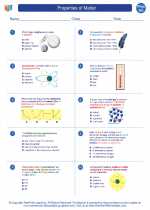Factors Affecting Durability
Material Properties
The intrinsic properties of a material play a significant role in determining its durability. Factors such as tensile strength, hardness, ductility, and resistance to corrosion and fatigue affect how well a material can withstand external forces and environmental conditions.
Stress and Strain
Understanding the behavior of materials under stress is crucial for assessing their durability. Concepts like elastic and plastic deformation, yield strength, and fracture toughness are essential in predicting how a material will respond to external forces.
Environmental Factors
External factors such as temperature variations, moisture, chemical exposure, and radiation can significantly impact the durability of materials. Understanding how these factors interact with different materials is essential for ensuring long-term stability and performance.
Applications of Durability
Structural Engineering
In structural engineering, durability is crucial for designing buildings, bridges, and other infrastructure to withstand various loads, environmental conditions, and aging processes. Materials selection and maintenance strategies are key considerations in ensuring the long-term durability of these structures.
Mechanical Systems
In mechanical systems, the durability of components and materials is essential for maintaining the performance and safety of machines and devices. Understanding factors such as fatigue strength, wear resistance, and lubrication is critical in designing and maintaining durable mechanical systems.
Materials Science
The field of materials science focuses on developing and studying materials with enhanced durability for specific applications. Research in this area often involves exploring new materials, coatings, and composites that exhibit superior resistance to various forms of degradation.
Study Tips
- Review the fundamental properties of materials, including mechanical properties, thermal properties, and chemical resistance.
- Understand the concepts of stress and strain, including different types of stress (tensile, compressive, shear) and the behavior of materials under these conditions.
- Explore case studies of durable and non-durable materials in real-world applications, analyzing the factors that contribute to their performance or failure.
- Practice problem-solving related to material durability, such as calculating stress concentrations, fatigue life, and corrosion rates.
- Stay updated on advancements in materials science and engineering, including new techniques for enhancing durability and sustainability.
◂Physics Worksheets and Study Guides High School. Properties of Matter

 Worksheet/Answer key
Worksheet/Answer key
 Worksheet/Answer key
Worksheet/Answer key
 Worksheet/Answer key
Worksheet/Answer key
